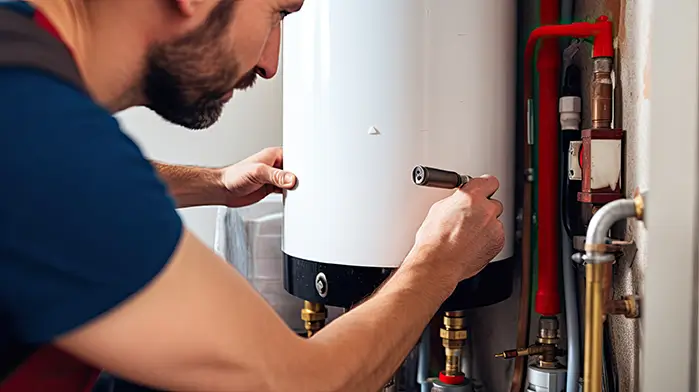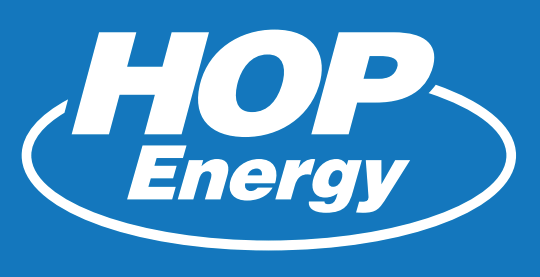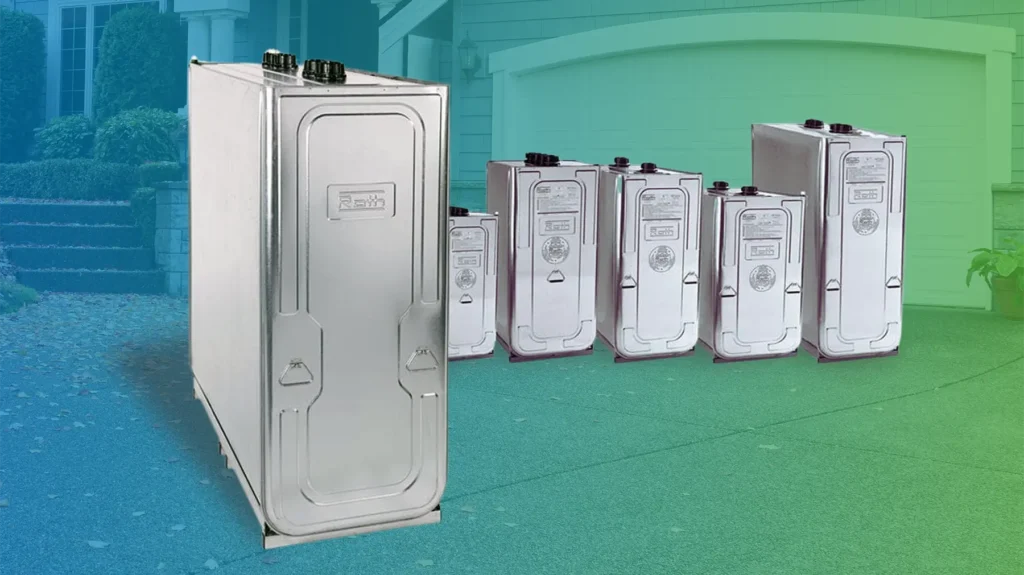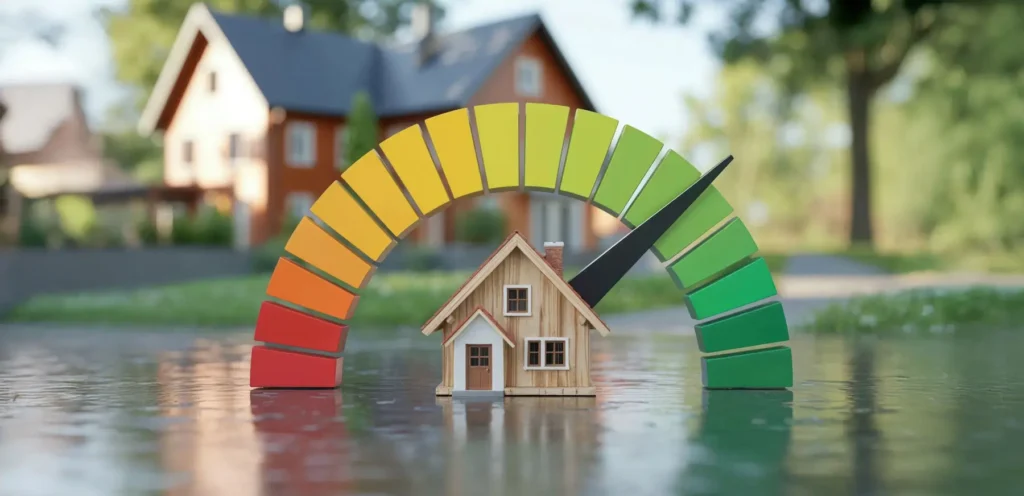Choosing the right heating system is a critical decision for homeowners, especially in regions where winter weather demands reliability and efficiency. Boilers and furnaces are the two most common systems, and while both effectively warm your home, they operate very differently.
Understanding how they work, and how factors like energy efficiency, fuel type, and installation cost vary, can help you make the best choice for your home and budget.
Table of Contents
How They Work
Boiler:
A boiler heats water and circulates either hot water or steam through pipes and radiators to distribute radiant heat. This system uses water as the heat conductor, creating an even warmth throughout the home without drying out the air.
Boilers can run on natural gas, oil, electricity, or propane. Many modern propane boilers are highly efficient, making them a great choice for homes without access to natural gas. Some systems can also provide domestic hot water, eliminating the need for a separate water heater.
Furnace:
A furnace heats air and pushes it through a system of ducts using a blower motor. The heated air then enters rooms through vents. Furnaces can be powered by natural gas, propane, heating oil, or electricity, with propane furnaces being especially popular in rural areas.
Because furnaces rely on forced air, they heat quickly but may cause uneven temperatures and dry air if not properly maintained.
Key Differences Between Boilers and Furnaces
Key Differences
Feature | Boilers | Furnaces |
|---|---|---|
Energy Efficiency | Generally more efficient due to water’s superior heat retention. AFUE ratings range from 80%–95%. | Can reach up to 98% AFUE, but air loses heat as it moves through ducts. |
Comfort | Even, radiant heat that doesn’t dry air or circulate dust. | Quick heating but can cause drafts and dry air. |
Installation & Cost | Higher upfront installation cost; lower monthly operating costs. | Lower upfront cost; higher maintenance needs over time. |
Maintenance | Annual inspection; leaks can be costly. | Filter changes every 1–3 months plus annual service. |
Versatility | Can also provide hot water. | Can pair with central AC for year-round comfort. |
The Biggest Differences
The most significant difference between a boiler and a furnace is the heating method: boilers use water or steam, while furnaces use air. This impacts not only comfort and humidity, but also long-term efficiency.
Boilers deliver steady, radiant warmth that feels comfortable and even, while furnaces heat air quickly but may create temperature fluctuations between rooms.
How Each System Heats Your Home
- Boilers distribute heat through radiators, baseboard units, or in-floor radiant tubing. Because heat is transferred through water, it’s slower to rise and longer to cool, which is ideal for consistent, comfortable warmth.
- Furnaces distribute heat through ducts and vents. Air warms fast but cools quickly when the blower stops, creating a less consistent feel.
If you’re using propane to power your system, consider your tank size:
- 100-gallon tanks are typically used for supplemental or smaller-space heating.
- 250–500-gallon tanks suit average-sized homes using propane for both heating and appliances.
- 1,000-gallon tanks may be required for larger homes or properties with multiple propane systems (furnace, water heater, range, etc.).
Your HOP Energy technician can help determine the right propane tank size for your home’s heating system.
Boiler vs. Furnace Comparison Chart
Feature | Boilers | Furnaces |
|---|---|---|
Upfront Installation Cost | Higher | Lower |
Energy Efficiency | Higher | High but variable |
Maintenance | Less frequent, annual inspection | Frequent, monthly filter changes |
Comfort | Even heat, no air dryness or drafts | Quick heating, but potential for drafts and air dryness |
Lifespan | 20–30 years | 15–20 years |
Air Quality | No air circulation, cleaner air | Can circulate dust and allergens |
Pros and Cons
Boilers - Pros
- Consistent, radiant heat and excellent comfort
- Can also heat domestic water
- Energy-efficient and quiet operation
Boilers - Cons
- Higher upfront cost
- Slower to heat
- Potential water leak risk
Furnaces - Pros
- Lower initial installation cost
- Heats rooms quickly
- Easily integrates with central air conditioning
Furnaces - Cons
- Requires frequent maintenance
- Can circulate dust and allergens
- Less efficient heat retention than boilers

Maintenance Requirements
Boilers:
Require annual professional inspections and occasional pressure checks. They typically need fewer service visits than furnaces, though leaks can be expensive if ignored.
Furnaces:
Need regular filter replacements every 1–3 months, annual cleaning, and blower inspections. Neglecting maintenance can lead to airflow issues and efficiency loss.
Setting up a HVAC maintenance plan with a trusted heating and cooling company makes it easy to stay on schedule and extend the life of your heating system.
Energy Efficiency
Boiler vs. Furnace Efficiency:
Boilers often edge out furnaces in long-term efficiency because heating water takes less energy than heating air. High-efficiency boilers have AFUE ratings between 90% and 95%, while gas and propane furnaces can reach up to 98% AFUE.
However, duct losses can reduce furnace efficiency by 10–15%. In contrast, boilers deliver heat directly to radiators or radiant systems, minimizing waste.
Can You Replace One With Another?
Yes. but it’s not always simple. Switching from a furnace to a boiler (or vice versa) typically requires new infrastructure:
- A boiler system needs pipes, radiators, or radiant floor loops.
- A furnace system needs ducts and vents.
If your home already has ductwork, upgrading to a high-efficiency gas or propane furnace may be most cost-effective. Homes without ducts often benefit more from a modern boiler system.
Furnace vs. Boiler Monthly Cost
When comparing the monthly cost of a furnace vs. a boiler, the key factors are fuel price, system efficiency, and home size.
- Furnaces are less expensive to install but can have higher ongoing energy bills, especially in older homes with leaky ductwork.
- Boilers may cost more upfront but usually have lower monthly fuel costs due to superior heat retention.
If you’re using propane, larger fuel tanks (500+ gallons) can often lock in lower per-gallon pricing, reducing your overall monthly heating expenses.
Which Is Right for You?
When deciding between a boiler and a furnace, it helps to consider the factors that matter most to your home and climate:
Climate: In colder regions, boilers are often preferred for their ability to deliver steady, radiant heat that keeps every corner of the home warm. In milder climates, furnaces may be more practical, as they heat air quickly and can bring your home to a comfortable temperature faster.
Home Size & Layout: Larger homes or those with radiant heating systems often benefit more from boilers. Smaller homes, and especially those already equipped with ductwork, are typically better suited for furnaces.
Existing Infrastructure: If your home already has ductwork, a furnace installation is usually more straightforward and cost-effective. For homes without ducts, a boiler system can be the smarter investment since it eliminates the need for expensive retrofitting.
Fuel Source & Efficiency: Homeowners with propane heating systems can choose between propane furnaces and boilers, both of which come in different efficiency ratings and tank sizes. Larger propane tanks (250–500 gallons) work best for whole-home heating, while smaller tanks may be sufficient for supplemental or zoned systems.
Ultimately, choosing between a boiler and a furnace comes down to your home’s infrastructure, energy source, and comfort preferences. Boilers tend to provide more consistent, energy-efficient heat — especially in colder climates — while furnaces offer faster, budget-friendly heating for homes with existing ductwork.
FAQs
Is it better to have a boiler or a furnace?
It depends on your climate and comfort needs. Boilers offer consistent, energy-efficient warmth, while furnaces are more affordable and heat faster.
Can I use propane with a boiler or furnace?
Yes. Both can be powered by propane — just make sure your tank size matches your home’s heating demand. HOP Energy offers delivery and fuel tank installation for all system types.
Which lasts longer — a boiler or a furnace?
Boilers typically last 20–30 years, while furnaces last 15–20 years with regular maintenance.
What's more energy efficient — a gas furnace vs. a gas boiler?
Both can be efficient, but boilers usually retain more heat over time. However, top-rated gas furnaces can reach higher AFUE percentages.
What costs more per month — a boiler or furnace?
Boilers tend to cost less to operate over time, especially in colder climates. Furnaces may have lower installation costs but higher ongoing fuel use.
Ready to Upgrade Your Heating System?
Whether you’re leaning toward purchasing a boiler or a furnace, HOP Energy’s experts can help you find the right fit for your home and ensure that you have an energy-efficient heating system.
Contact your local HOP Energy office today for professional furnace and boiler installation, as well as replacement, maintenance, and repair services.




